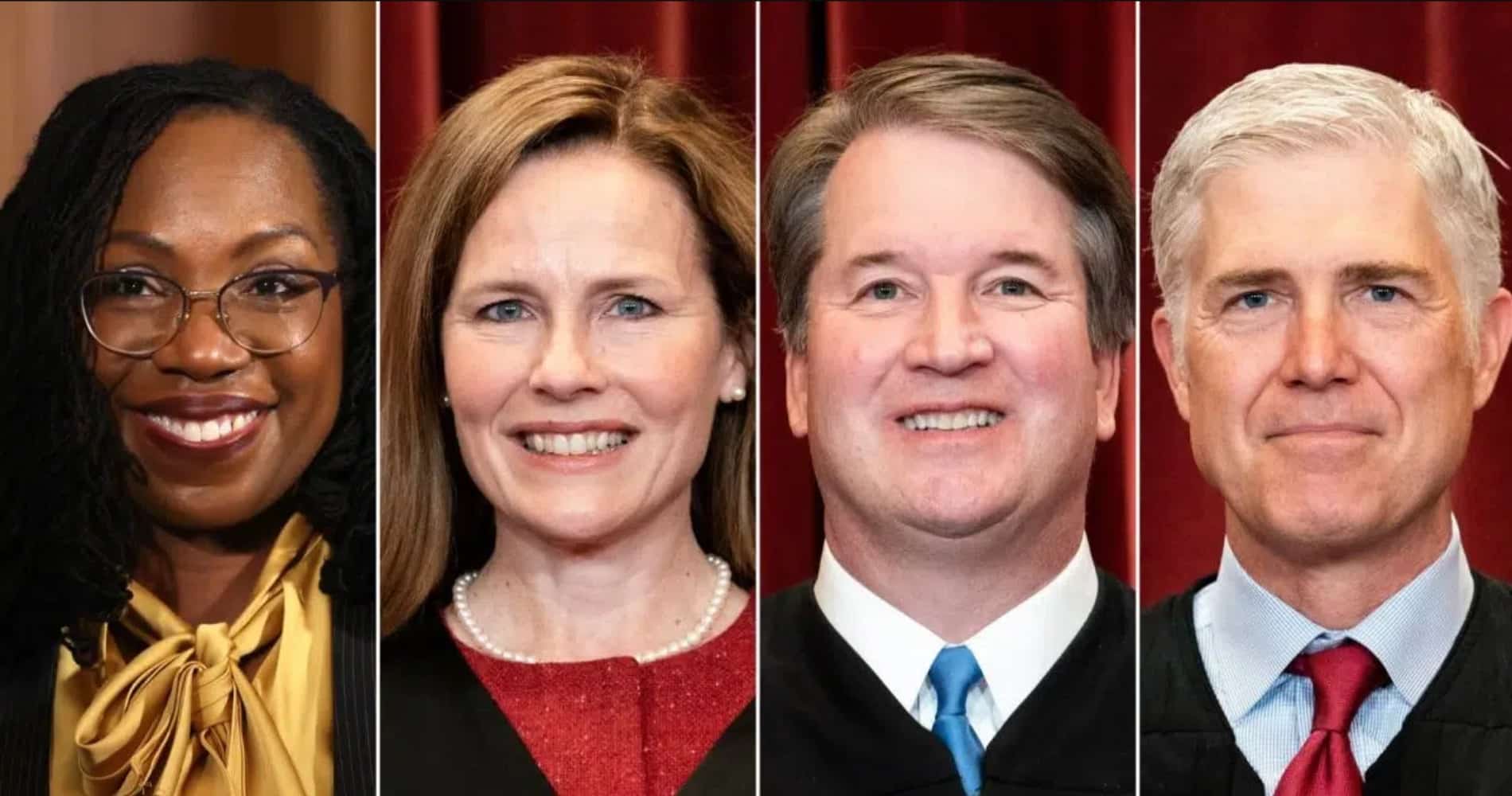OPINION: This article may contain commentary which reflects the author's opinion.
The U.S. Supreme Court is set to wade into yet another controversial issue as justices prepare to hear oral arguments during the new session.
The court on Monday will hear a case regarding whether college admissions based on race and/or ethnicity are constitutional, and many on the left are already becoming frantic that they could end under the high court’s current conservative majority, the American Digest reported.
Most Americans of all ethnicities disagree with race-based college admissions, attorney Beverly A Pekala noted on Twitter, citing a Pew Research survey.
“In polling by Pew Research, 75% of Americans, incl. majorities of every racial group, say race/ethnicity should not be factors in admissions,” she wrote on Twitter.
SCOTUS hears arguments next Monday in Harvard, UNC cases on race-based affirmative action admissions.
In polling by Pew Research, 75% of Americans, incl. majorities of every racial group, say race/ethnicity should not be factors in admissions. #Thursday https://t.co/BjY2QUcQfv pic.twitter.com/i1snP3bRSU— Beverly A. Pekala (@PekalaLaw) October 27, 2022
At issue is the racial admissions standard practiced by one of the country’s Ivy League schools, Harvard University, as well as another involving admissions practices at the University of North Carolina.
“Affirmative action will be thrust into the spotlight next week as the Supreme Court prepares to hear two cases: Students for Fair Admissions v. Harvard and Students for Fair Admissions v. the University of North Carolina,” The Hill reported.
“A ruling on the two cases by the conservative court could reverse 40 years of precedent of race-conscious admissions to colleges and universities,” the outlet continued.
Hans von Spakovsky, a senior legal fellow at the Heritage Foundation, told Fox News: “It’s very clear to me that Harvard University was engaging in blatant discrimination. And what they were doing was they did not like the fact that Asian-Americans – if they were simply admitted based on their credentials, qualifications – would have such a huge percentage of the student body.”
“Harvard and the University of North Carolina have racially gerrymandered their freshman classes in order to achieve prescribed racial quotas,” he noted further.
"Every college applicant should be judged as a unique individual, not as some representative of a racial or ethnic group," SFFA Pres Edward Blum.
Supreme Court to hear case that could end 40 years of race-based affirmative action in university admissionshttps://t.co/ARe7vzKcvp
— Geary Higgins (@GearyHiggins) August 11, 2022
American Digest adds:
The left won’t like the consequences that may change the diversity levels at the schools, but the decision is the right one.
Students seeking to apply to a school should be accepted based on their abilities, not their race, something everyone should agree on.
SCOTUS Blog explained the genesis of the cases.
“In 2003, the Supreme Court ruled in Grutter v. Bollinger that universities may consider race in their admissions processes as part of their efforts to achieve diversity on campus. On Oct. 31, the justices will hear oral arguments in a pair of cases asking them to overturn Grutter and outlaw race-based affirmative action in higher education altogether,” the blog explained.
“The challengers urge the justices to rule that the Constitution and federal civil rights laws bar any consideration of race in college admissions. But the universities at the center of the dispute, as well as their supporters, counter that overruling Grutter would have sweeping effects well beyond university admissions, affecting everything from the performance of U.S. businesses to the practice of medicine in an increasingly diverse society,” the blog continued.
Harvard has argued in legal briefs that 40 percent of all U.S. universities and 60 percent of selective campuses engage in race-based admissions.
“In its lawsuit against Harvard, [Students for Fair Admissions] alleged that the university discriminates against Asian American applicants, arguing that they are less likely to be admitted than similarly qualified white, Black, or Hispanic applicants. Harvard receives over 35,000 applications for 1,600 spaces in its freshman class,” the blog continued.
The blog explained further:
In 2015, Harvard asked the district court to put the proceedings on hold until the Supreme Court issued its decision in a challenge to the consideration of race in the admissions process at the University of Texas at Austin. In that case, also backed by Blum, a divided Supreme Court upheld the university’s use of race, but the justices suggested that the university’s policy was unique, and that other schools would have to pass a high bar if they wanted to continue to use race-conscious admissions programs.
Two years after that ruling, the Harvard case went to trial before a federal district judge in Massachusetts. After a 15-day trial, Judge Allison Burroughs issued a 130-page opinion in which she concluded that Harvard had not violated Title VI of the Civil Rights Act, which bars entities that receive federal funding from discriminating based on race. Harvard, Burroughs ruled, did not intentionally discriminate against Asian Americans, and the university considered race because it was necessary to obtain the benefits of a diverse student body.
The U.S. Court of Appeals for the 1st Circuit upheld Burroughs’ ruling. It agreed that under Supreme Court precedent, Harvard’s consideration of race in its admissions program does not violate Title VI. It noted that the university had tried other strategies to increase enrollment by Black and Latino students – such as increasing financial aid – but it concluded that those methods were not as effective.
